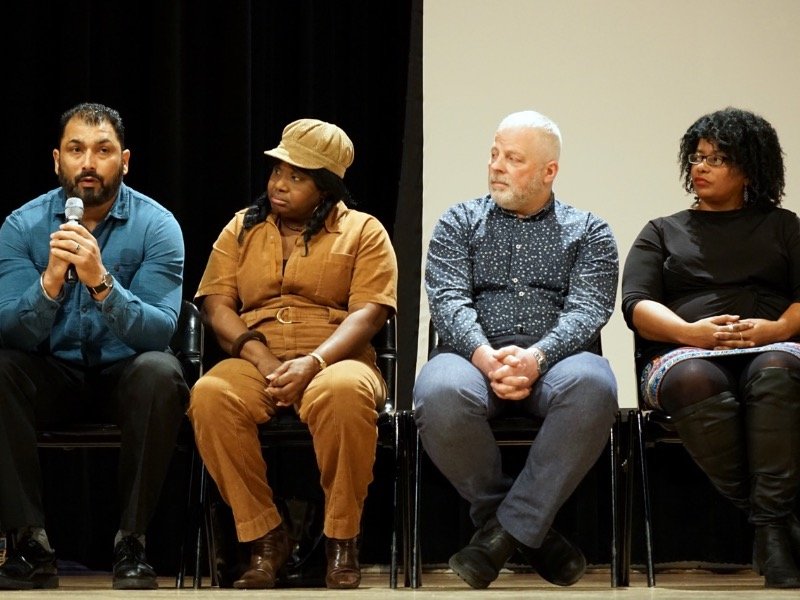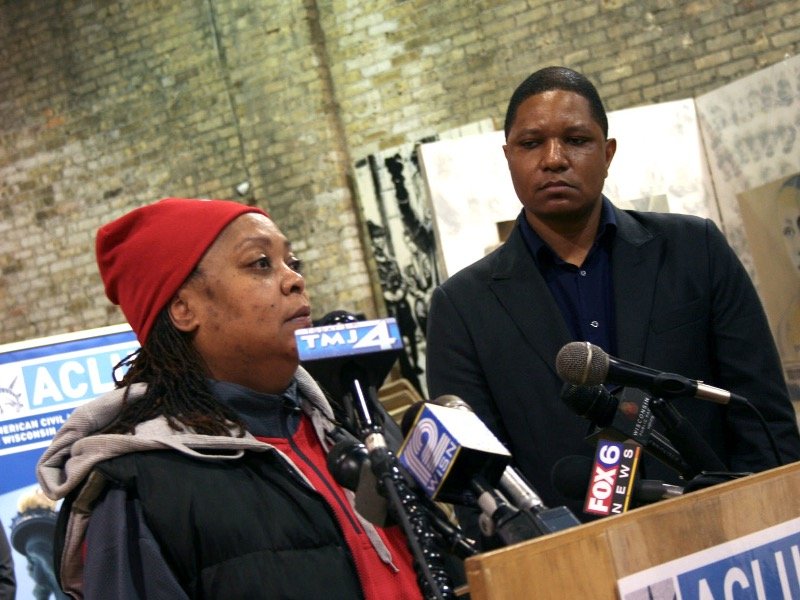Me: "What’s crackin, Fam?"
My cousin: "I’m aight, but these folks at work got me twisted with all this stuff they piled on me last minute. These goofies tryna get me caught up, but I’m not going – that mess is for the birds."
Me: "True."
In translation, I asked my cousin how his day was going, and he responded that he was doing all right, but he’s upset about the last minute work he’s getting from his co-workers (he’s an event coordinator at a hotel). He refers to them as "goofies," a Chicago term that people don’t take kindly to; a "goofy" is someone who’s basically incompetent in all aspects of life. So, the incompetent nitwits and their last-minute antics have the ability to set him behind in his daily progress, but he isn’t OK with it. Their antics are ultimately unacceptable, to which I agreed with.
Would we ever speak to our colleagues or bosses like that? No, unless we’re close friends with those people and, even more so, if those people were from Chicago. You see, there’s this thing that people tend to do when they communicate with others in different setting.
It’s called code-switching.
Code-switching refers to the alternation between different types of language during conversation. Comedians Key & Peele have famously demonstrated code-switching on multiple occasions, including their spoof on President Obama and his anger translator "Luther." Luther is "actually" black.
Angry Luther donned gaudy gold rings and spoke loudly, using slang and profanity, as he acted out what Obama really wanted to say. The genius of it is: I could absolutely see President Obama "popping off" the way that Key was … but only in the right setting.
Growing up, code-switching was a normal way of life for me. Coming from an immigrant Jamaican family, born in New York (with most childhood summers spent there), raised in Chicago, years spent living in Florida and with multiple English and journalism courses under my belt, my language influences are plentiful. "What’s crackin, Fam" may switch to "Wah gwaan, my Yute" if I see my cousin along with other family members, even though we’re both from Chicago; nevertheless, the majority Jamaican presence makes us switch to a more patois-based lingo.
Our code-switching is so swift and effortless that even our parents find themselves picking up on our ethnic Chicago dialect. I’ll never forget the day that my aunt told me that my cousin was "tweakin’" (Chicago’s term for "bugging out") due to his not-so-trendy dance moves or the day my mom told me to go "kick rocks" because I refused to let her adjust my perfectly-laid bangs. Our Jamaican parents that "came from yaad" have found themselves code-switching to relate to their younger, yet grown, counterparts. This goes to show that any and everybody has the ability to, and most times follow through with, code-switching in various settings.
President Obama is one of the coolest dudes to ever do it. He has the ability to eloquently deliver a State of the Union or offer a little extra change to the cashier at the local hot dog shop with a, "Nah, we straight."
It’s not like the president is trying to be someone he’s not; he’s simply showing different sides of who he is. Obama has been accused of being too black, or not black enough, time and time again due to his use of speech. Why is it that society feels the need to tell people to fit into a box of identity?
Isn’t it possible that everyone is an individual and can relate to multiple ways of speaking, being or overall life?
The moment, though, that caught everyone off guard was at Saturday’s White House Correspondents’ Dinner when Obama laughed and nonchalantly accepted Larry Wilmore’s referral to him as "my nigga."
Let me make this clear: Within the black community, the term "nigga" is often seen as a term of endearment to one another, but not all black people use it. It’s another form of the term "bro" or "dude." However, it’s mostly not a word that’s acceptable to use around mixed company – anyone who isn’t of the African diaspora. And I am by no means a spokesperson for all black people, but I do know that when the N-word comes out of someone’s mouth who isn’t black, it’s often in a derogatory sense. A lot of people were uncomfortable when Wilmore didn’t hide his "blackness," or that of the president’s, and he definitely used the term openly in front of a room of mixed company.
Honestly, I don’t really see the big deal with it. I don’t know the extent of President Obama and Wilmore’s relationship, but I’ve seen plenty of black men refer to each other as such on multiple occasions. They chose to show their identity as black men in that moment, a piece of identity that’s continuously stigmatized and disrespected. People seem to forget that presentation is everything. For this reason, Barack Obama probably wouldn’t have made it in the doors of Harvard, let alone become the president of the United States, if he presented his fully "black" self at all times.
Black parents even feel pressure about choosing to name their children George or Zoe, rather than Marquise or Sherisa, to keep them from being disregarded before they even have a chance at an interview. Trust me, I’ve seen it happen. These are honest, real issues that black people face in their lifetimes and can determine our success at any moment’s notice. So of course Obama, and most professional black people, are going to code-switch the hell out of their interactions to better position themselves in society. Wilmore’s words in front of the Correspondents’ Dinner were nothing more than an opportunity to openly, and lovingly, appreciate and acknowledge Obama’s black identity – and maybe even a reminder of the parts of ourselves we tone down for success.
Maybe Obama uses the term openly amongst his friends, but he wouldn’t dare speak that way in front of anyone else. It doesn’t make him a fake. It doesn’t make him a bad person. It simply makes him human.
As a black man, there’s a lot more pressure to be taken seriously in a professional setting because everyone expects you to be lazy, unreliable and a list of other negative qualities. I admire Obama’s candid moments of normalcy; it reminds me – and others, I’m sure – that it’s OK to acknowledge the parts of you that came from a place of slang and improper grammar, while simultaneously being the ultimate professional: the leader of the free world.
Code-switching isn’t meant to be seen as negative. It’s a normal function of human interaction.
Zoe Benjamin, currently a senior at UW-Milwaukee, was raised in the South suburbs of Chicago. She is a foodie, an avid traveler and music junkie, with just the right amount of nerdiness to top it all off.
Growing up in a large Jamaican family exposed her to a lifestyle full of food, laughter and pride. Zoe’s appreciation for her family’s eclectic nature led her to celebrate the differences in others. She just so happens to especially enjoy the study of food, seeing that eating is her favorite pastime.
Ever since she was able to get on a plane by herself, Zoe has taken the liberty of traveling to every place within her reach -- whether that be the next state over, or across the seas. Her wanderlust has taken her to 10 different countries, with France being her favorite. Nothing excites her more than French food and wine. Zoe hopes to absorb and share as much culture as she can so that the world may become that much more accepting of all the bountiful diversity in the world.







